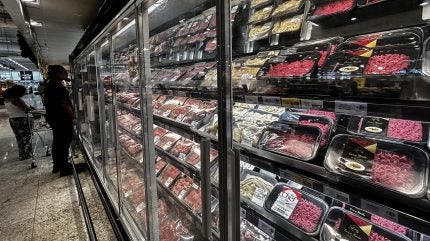
Brazil’s government has decided to eliminate import taxes on food products considered essential to reduce prices.
The list of products includes coffee, olive oil, sugar, corn, sunflower oil, sardines, cookies, pasta and meat.

Discover B2B Marketing That Performs
Combine business intelligence and editorial excellence to reach engaged professionals across 36 leading media platforms.
The announcement was made by the country’s vice president Geraldo Alckmin, also minister for industry and trade, after a meeting led by President Lula with the ministers of agriculture, agrarian development, finance and other government departments.
Alckmin said: “These are measures to reduce prices, to benefit citizens so that they can maintain their purchasing power and have their basic food basket at a better price.
“This also ends up stimulating the production and commerce sectors. All of these are initiatives, from the regulatory measures to the tax ones, in which the government is failing to collect revenue, giving up taxes to favour price reductions.”
The import tax rates Brazil charges on the food items vary between 7.2% (corn) and 32% (sardines).

US Tariffs are shifting - will you react or anticipate?
Don’t let policy changes catch you off guard. Stay proactive with real-time data and expert analysis.
By GlobalDataThe move also includes raising the import quota for palm oil from 60,000 to 150,000 metric tons.
The Brazilian government is also looking to make changes to its inspection rules. The move would extend of the jurisdiction of Brazil’s Municipal Inspection Service to a national level.
The SIM (Serviço de Inspeção Municipal) is a regional food safety inspection and regulatory body, which inspects and regulates animal products.
Items processed under SIM standards are only allowed to be sold within the borders of a city or a town. Under the plans, its remit will be expanded to the national level and enable products already been certified at a local level to be sold nationwide. The measure includes items such as liquid milk, honey and eggs.
Minister Carlos Fávaro, Brazil’s minister of agriculture and livestock, said the changes would provide more opportunities for the country’s farmers.
He said: “For one year, we will apply the effects of the SIM to the entire Brazilian territory. To those products that are cleared of being at risk of potential health problems – without any loss in food quality (…)”.
Meanwhile, the Brazilian government is also looking to boost the domestic production of basic food items. According to a government statement, the National Supply Company (Conab) will invest in the formation of “regulatory stocks”.
Paulo Teixeira, minister of agrarian development and family agriculture, said: “We will have a set of products that will be subsidised to offer to Brazilian society, focusing on the basic food basket.”



